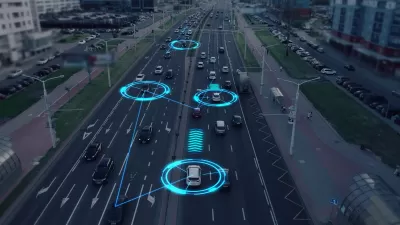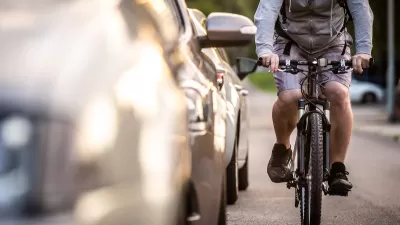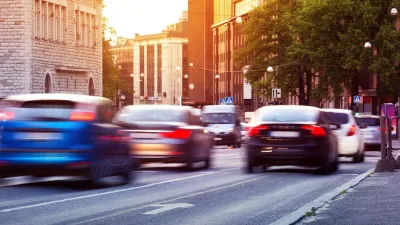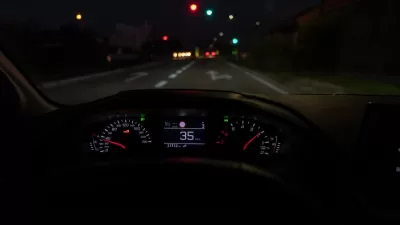The technology known as V2X could prevent crashes and save lives by allowing vehicles to communicate with each other and road infrastructure.

The U.S. Department of Transportation is releasing a plan for the deployment of technology that allows cars to ‘talk’ to each other, potentially preventing thousands of crashes.
As Joel Rose explains in a piece for NPR, the tech, known as vehicle-to-everything, allows vehicles to exchange information with other vehicles and sensors including roadway infrastructure. “Users could send and receive frequent messages to and from each other, continuously sharing information about speed, position, and road conditions — even in situations with poor visibility, including around corners or in dense fog or heavy rain.”
While the National Highway Traffic Safety Administration (NHTSA) was poised to mandate the technology during the Obama administration, the proposal was later dropped. The new plan could reduce the “regulatory uncertainty” that has hindered the deployment of V2X. “In the short-term, the plan aims to have V2X infrastructure in place on 20% of the National Highway System by 2028, and for 25% of the nation's largest metro areas to have V2X enabled at signalized intersections.”
FULL STORY: U.S. presses the ‘reset button' on technology that lets cars talk to each other

Planetizen Federal Action Tracker
A weekly monitor of how Trump’s orders and actions are impacting planners and planning in America.

Maui's Vacation Rental Debate Turns Ugly
Verbal attacks, misinformation campaigns and fistfights plague a high-stakes debate to convert thousands of vacation rentals into long-term housing.

San Francisco Suspends Traffic Calming Amidst Record Deaths
Citing “a challenging fiscal landscape,” the city will cease the program on the heels of 42 traffic deaths, including 24 pedestrians.

Amtrak Rolls Out New Orleans to Alabama “Mardi Gras” Train
The new service will operate morning and evening departures between Mobile and New Orleans.

The Subversive Car-Free Guide to Trump's Great American Road Trip
Car-free ways to access Chicagoland’s best tourist attractions.

San Antonio and Austin are Fusing Into one Massive Megaregion
The region spanning the two central Texas cities is growing fast, posing challenges for local infrastructure and water supplies.
Urban Design for Planners 1: Software Tools
This six-course series explores essential urban design concepts using open source software and equips planners with the tools they need to participate fully in the urban design process.
Planning for Universal Design
Learn the tools for implementing Universal Design in planning regulations.
Heyer Gruel & Associates PA
JM Goldson LLC
Custer County Colorado
City of Camden Redevelopment Agency
City of Astoria
Transportation Research & Education Center (TREC) at Portland State University
Jefferson Parish Government
Camden Redevelopment Agency
City of Claremont





























